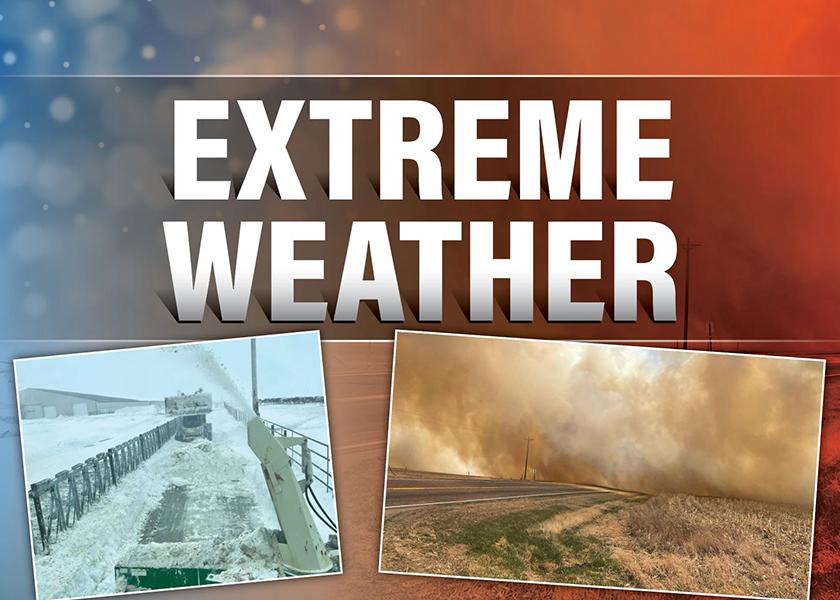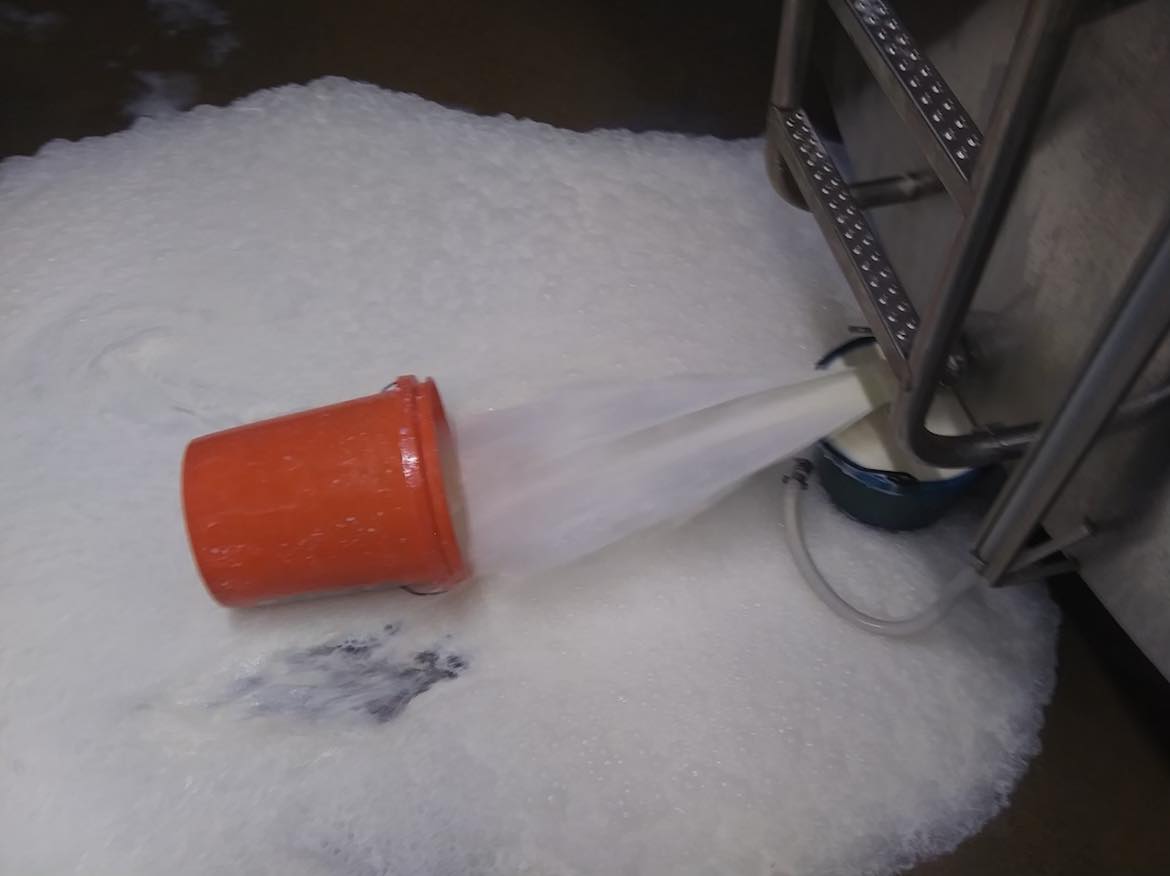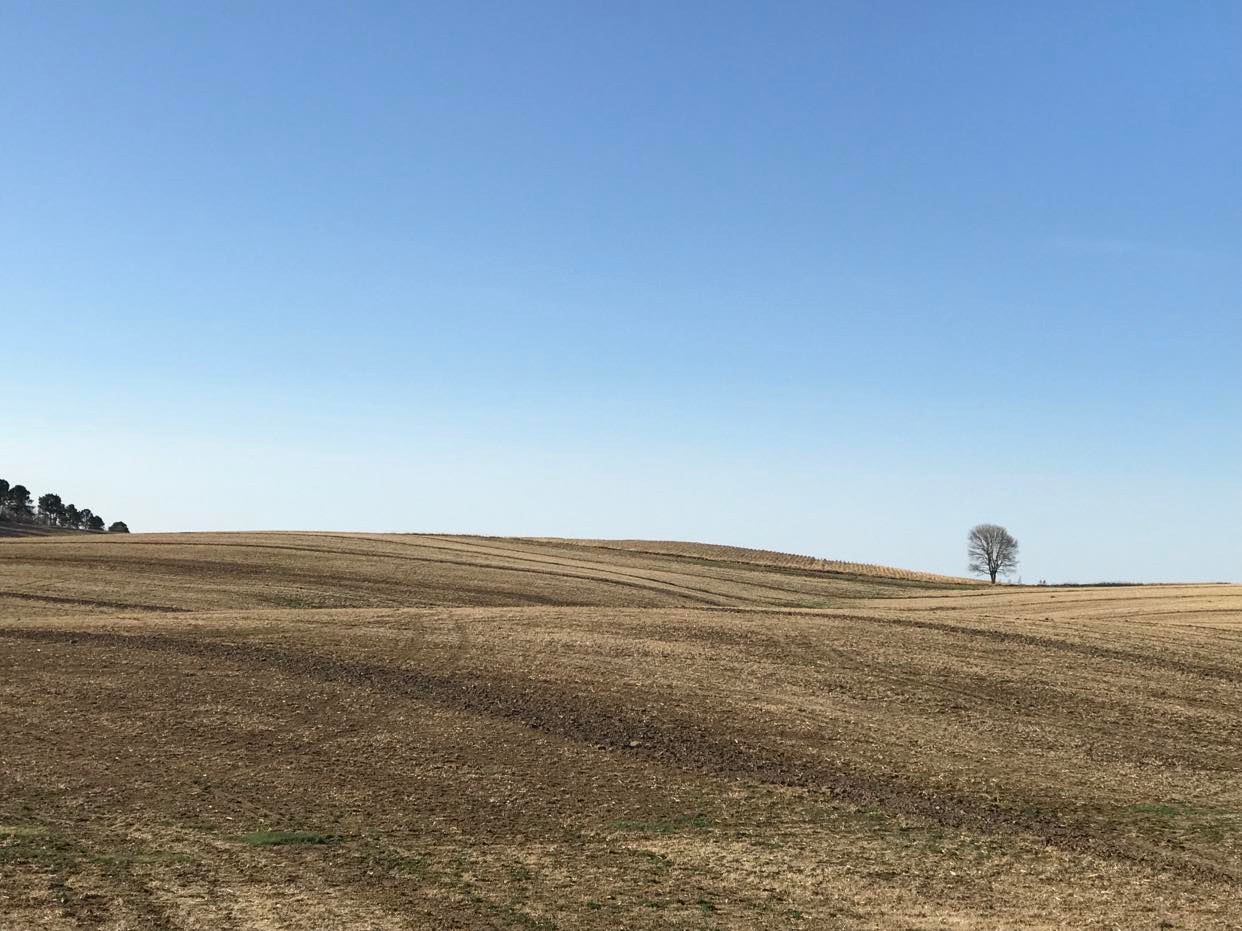Two Tales of Weather Impact the Mid-Section of the Country

Another round of wintery weather came to North Dakota after the storm of the century – Snowmageddon – plowed through the northern prairie ahead of Easter weekend.
Rachel Howe is exhausted after two knock-out punches of winter weather that has hit her Dickinson, N.D. dairy farm. Alongside her father, Dean Karsky, and her brother, Derek, Howe’s family owns and operates Karsky Dairy. The family milks 220 cows.
Howe reports another foot of snow fell over the weekend. This is after her farm received 30 inches just days ahead of Easter.
“Just ahead of the last snow, we received 1.70 inches of rain,” Howe reports.
Thankfully, this time around, the roads were clear enough for the milk truck to make it Karsky Dairy. The previous Snowmageddon snowstorm didn’t allow this, and her farm was forced to dump 11,000 pounds of milk down the drain.
Her father, Dean, says, “In today’s market, that’s about $2,750 we just dumped down the drain. With the high feed cost and labor and everything else, you can’t afford to be dumping everything down the drain.”

As the family looks to the fields, they are unsure when spring planting will begin. The farm's liquid manure, which generally is done by mid-April, has yet to be injected into their fields.
“We honestly have no idea when we will be in the fields,” Howe reports. “They are calling for another inch of rain this coming weekend.”
Near Bismark, Northern Lights Dairy was thankful they missed the snow this time around but said they received 1.2 inches of rain.
“Due to all the wind and ice, there are a lot of power lines down and we were without power on Sunday and had to use the farm generator to milk,” one of the owners, Jennifer Holle says.
A Far Different Story Unfolds in Nebraska
Head southwest to Lincoln, Nebraska and a different weather story is worrying farmers.
Nebraska dairy farmer, Jodi Cast says the weather has been pretty bad, especially considering they have received little to no moisture this winter.
“A couple of dustings and maybe one snow that produced a couple of inches,” she says. “It is not only dry but also very windy. Like 30-40 mph that adds to the overall dryness.”
While Cast, who farms alongside her husband, Jason, milking 200 cows while not running any farm ground, still worries about the availability and costs of feed they must purchase.
“We buy all our feed,” she notes. “Where we purchase our hay from pivots which helps, but our biggest concern is price. They just keep going up on everything.”
In Mason City, Neb., Joyce Racicky is also worried about hay prices, especially with shortages already reported.
Racicky and her family milk 85 Holsteins and raises most of their feed, but still purchases some alfalfa to feed their cattle. She shares that hay is being donated due to all the fires in her state.
“The southwest part of Nebraska lost nearly all of its grass and are asking for hay donations,” Racicky shares.

With dairy farmers needing high-quality alfalfa to feed their cattle, Racicky isn’t worried about hay being donated. She shares that the closest big fire is about 60 miles southwest of them, but they did have a smaller fire a few months ago only four miles from their farm.
The Nebraska Emergency Management Agency shared approximately 100 calves were killed when one fire in Rising City burned several calving sheds, and at least three fire trucks were damaged or destroyed in the fires.
USDA has technical and financial assistance to help Nebraska farmers and livestock producers across the state recover from recent wildfires and ongoing drought. Producers impacted should contact their local USDA Service Center.
Racicky says people in her state have gone through so much from being evacuated, with sometimes only one way in or out of towns.
"Some lost their homes, outbuildings, equipment, pivots, livestock and two fire chiefs died in accidents from poor visibility spotting the fires.," she shares. "The pastures are going to need a substantial amount of rain to be able to put cows in. Everyone is praying for rain in central and western Nebraska."







